
-
Posted By nikhilmehra
-
-
Comments 0
Vascular health is crucial for the circulatory system to operate properly. The vascular system consists of arteries, veins, and capillaries that carry blood throughout the body, supplying oxygen and nutrition to cells while eliminating waste materials. Any interruption in vascular health can result in major health problems, including cardiovascular disease.
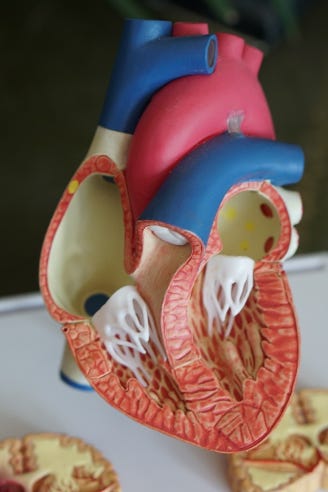
Credit: Unsplash
Chronic inflammation is now being identified as an important factor in the development and progression of vascular disorders. When the immune system becomes dysregulated and inflammation continues over time, it can harm the fragile endothelium lining of blood vessels and encourage plaque development, resulting in disorders such as atherosclerosis.
Understanding inflammation and vascular health:
Inflammation is the bodys natural response to damaging stimuli like viruses, poisons, or physical damage. In acute instances, inflammation is useful since it helps the body repair and fight infections.
When inflammation becomes chronic, it can lead to the development of a variety of disorders, including those affecting the vascular system. Chronic inflammation can be caused by a variety of conditions, including a poor diet rich in processed foods, excessive alcohol consumption, smoking, obesity, sedentary lifestyle, and stress. These variables can cause an increase in pro-inflammatory molecules and oxidative stress, which contributes to endothelial dysfunction, atherosclerosis, and hypertension 1 .

– Dr. Nikhil Mehra
Quote from the expert: “Inflammation is a double-edged sword. It is
required for healing, equally responsible for many chronic diseases. One
must be beware of inflammation causing foods”.
Scientific evidence supporting anti-inflammatory foods for cardiovascular health:
Numerous scientific research has looked at the impact of certain foods and dietary patterns on vascular health. Listed are a few major findings:
1. Reduced Risk of Atherosclerosis:
Atherosclerosis is defined by the accumulation of plaque in the arteries, which can cause constriction and hardening of the blood vessels. According to research, some dietary components, notably those found in fruits, vegetables, whole grains, and fatty fish, can help prevent atherosclerosis. These foods are high in antioxidants, fibre, vitamins, and omega-3 fatty acids, which have anti-inflammatory qualities and can help reduce LDL cholesterol oxidation, a critical stage in the development of arterial plaques.
2. Lower Blood Pressure:
Hypertension, or high blood pressure, is a significant risk factor for cardiovascular disease.
Several studies have shown that particular minerals and chemicals found in certain diets can reduce blood pressure. Allicin, a chemical found in garlic, has been demonstrated to relax blood vessels and reduce blood pressure. Similarly, polyphenols present in berries and olive oil have been linked to better vascular function and blood pressure management.
3. Improved Endothelial Function:
The endothelium, or inner lining of blood vessels, regulates vascular tone, blood coagulation, and inflammation. Vascular disease is characterised by endothelial dysfunction. Research indicates that ingesting foods high in flavonoids, such as chocolate, tea, and berries, can improve endothelial function by lowering oxidative stress and inflammation, which promotes vasodilation and blood flow.
4. Anti-Thrombotic Effects:
Thrombosis, or blood clot development, can result in catastrophic cardiovascular events such as heart attacks and strokes. Certain dietary components, such as ginger, turmeric, and omega-3 fatty acids found in fatty fish, are anti-thrombotic. These drugs prevent platelet aggregation and thrombosis, lowering the risk of clot-related problems 1 .
Incorporating Anti-Inflammatory Foods into Your Diet
To get the advantages of anti-inflammatory foods for vascular health, eat well-balanced and diverse diet rich in nutrient-dense foods.
Below are some diet recommendations:

Fruits and vegetables: Aim to consume a diverse range of fruits and vegetables, since they are high in vitamins, minerals, antioxidants, and phytochemicals that aid in inflammation reduction and vascular health. Berries, leafy greens, citrus fruits, and cruciferous vegetables are very nutritious.
Liu et al. conducted a prospective cohort study among 39,876 female health professionals to assess the associations between vegetable and fruit consumption and the risk of cardiovascular diseases, including CAD and stroke. The relative risk between those with the lowest and highest vegetable and fruit consumption (median value: 2.6 and 10.2 servings/day) was 1.0 and 0.68, respectively. This study indicated that vegetables and fruits might help prevent CAD, particularly myocardial infarction(MI).
In addition to the antioxidant vitamins C and E, green and yellow vegetables include high levels of carotenoids, such as beta-carotene, and polyphenols, such as anthocyanin, which are thought to help prevent atherosclerosis.
Fruits, particularly citrus fruits, have a high concentration of flavonoids, as well as antioxidant vitamins C and carotenoids. Hesperidin and naringin are especially abundant in oranges and grapefruits 2 .
The report by Esmaill Zadeh et al. on the eating habits of middle-aged women indicated that subjects with healthy eating habits (consumption of large quantities of fruits, vegetables, legumes, and fish and consumption of low quantity of meats high in saturated fatty acids) had a significantly reduced risk of metabolic syndrome, with the consumption of fruits making a particularly a big contributor to this decrease. They discovered that greater fruit intake was associated with lower levels of obesity and triglycerides, as well as higher levels of high-density lipoprotein cholesterol.
Furthermore, the researchers also found that high consumption of hesperidin and naringin reduced the incidence of stroke by 20%. Consuming fruits, as well as green and yellow vegetables, has been shown to help reduce atherosclerosis 3 .
Whole Grains:
Choosing whole grains like oats, quinoa, brown rice, and whole wheat bread over processed grains is beneficial. Whole grains are high in fibre, which increases satiety, regulates blood sugar, and improves heart health.
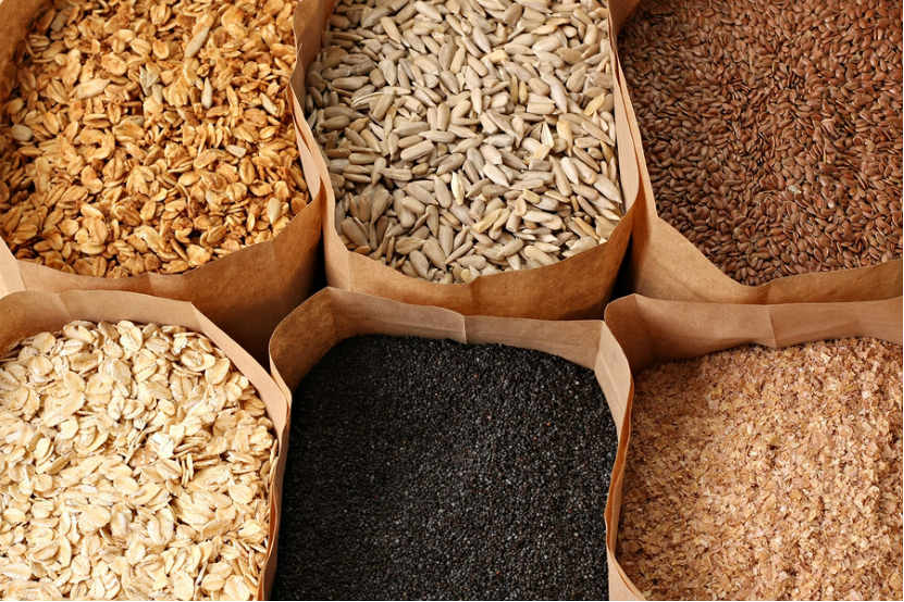
Credit: unsplash
Fatty Fish: Eat oily fish like salmon, mackerel, trout, and sardines on a regular basis. These fish have high levels of omega-3 fatty acids, which have anti-inflammatory and anti-thrombotic characteristics and are linked to a lower risk of cardiovascular disease.
In addition to EPA and DHA, fish contain astaxanthin, which may help prevent atherosclerosis.
Astaxanthin is a carotenoid, like lycopene in tomatoes and beta-carotene in carrots. It is found mostly in the red muscular meat of Salmonidae, crustacean shells, and the body surface of red sea bream. Astaxanthin is a powerful antioxidant with a particularly high capacity to remove singlet oxygen, estimated to be 6,000 times that of vitamin C and 500 times that of vitamin E.
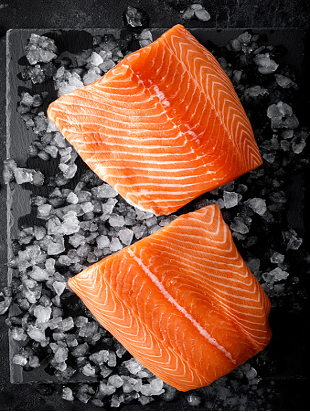
Credit: unsplash
Healthy Fats: When cooking and preparing meals, use healthy fats such as olive oil, avocado oil, nuts and seeds. These lipids contain both monounsaturated and polyunsaturated fats, which aid to decrease inflammation and enhance cholesterol levels.
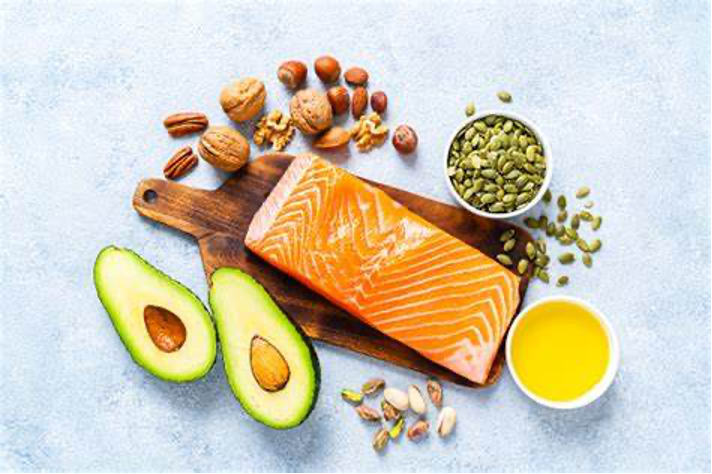
Credit: Unsplash
Herbs & spices: Incorporate garlic, ginger, turmeric, cinnamon, and oregano into your cuisine. These substances include bioactive molecules that have strong anti-inflammatory and antioxidant activities.
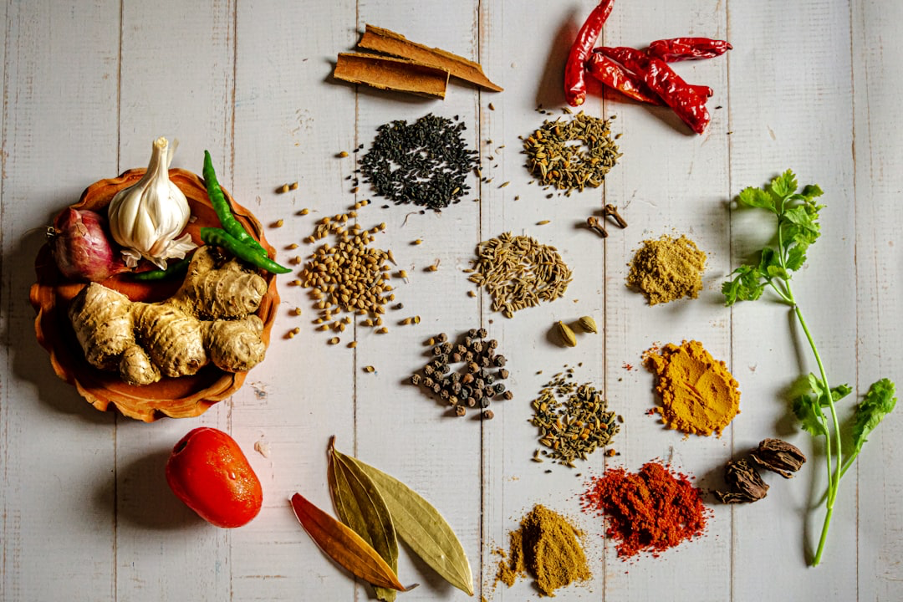
Credit: Pixabay
There is strong evidence that anti-inflammatory diets promote vascular health. Individuals who consume a diet high in fruits, vegetables, whole grains, fatty fish, and healthy fats can help reduce inflammation, enhance endothelial function, lower blood pressure, and lessen their risk of vascular disease.
Making intelligent dietary choices and include anti-inflammatory items in your regular meals can have a major long-term impact on vascular health and general well-being 4,5,6 .
Reference:
1. Rutherford Rutherford's Vascular Surgery and Endovascular Therapy, Anton N Sidawy, Bruce A Perler.
2. Liu S, Manson JE, Lee IM, et al. Fruit and vegetable intake and risk of cardiovascular disease: the women’s health study. Am J Clin Nutr.2000;72:922-8.
3. A Esmaillzadeh & L Azadbakht, Dietary energy density and the metabolic syndrome among Iranian women, European Journal of Clinical Nutrition volume 65, pages598–605 (2011)
4. He FJ, Nowson CA, MacGregor GA. Fruit and vegetable consumption and stroke: meta-analysis of cohort studies. Lancet. 2006;367:320–6.
5. Eleni Tourlouki Antonia-Leda Matalas Demosthenes B Panagiotakos. Dietary habits and cardiovascular disease risk in middle-aged and elderly populations: a review of evidence. Department of Nutrition Science – Dietetics, Harokopio University, Athens, Greece.
6. Vegetable and Fruit Intake Variety and Cardiovascular Health and Mortality: A
Systematic Review and Meta-Analysis of Observational Studies
About Me
Popular Tags
- #Stoicism
- autophagy
- cancer
- Classical music intervention
- EmotionalBalance
- fasting
- fasting benefits
- Gynecological surgery
- health
- health benefits
- healthcare
- healthy
- healthy diet
- HolisticHealing
- intermittent fasting
- lifestyle
- meals
- medical
- MedicationFreeLiving
- mental
- MindsetShift
- MultiModalApproach
- Music therapy
- nutrition
- Opioid alternatives
- Pain management
- PainManagement
- PatientEducation
- Personalized playlists
- Postoperative wellness
- postsurgery exercisse
- Step-by-step healing process
- vascular
- wellbeing


